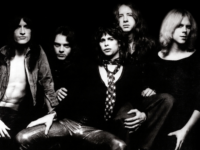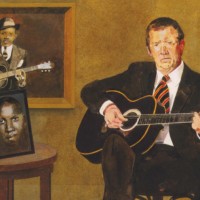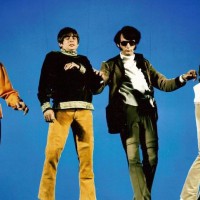I missed out on the Clash revolution in high school. They had been long extinct, but their specter loomed – and still looms – large on the music scene. It seemed like there was that subset of kids who pretty much lived with London Calling as their personal soundtrack.
They were easy to pick out: They were the ones who always wore suspenders and fatigues and sported menacing Doc Martens boots and drove things like old Army ambulances to school. These were the kids who really, really wanted it to be 1978 forever and they could spray paint their anarchy “A”s everywhere they went, snarling at the establishment in that oh-so-British way. For them, the Clash was more than just a band, they were a way of life.
I, however, was not among these kids.
In high school, I was busy listening to the fleet fingers of fat egos that have been long forgotten, stuff like Joey Tafolla and Vinnie Moore that no one cares to really remember anymore, and for good reason. I was a victim of the faster-is-better set and looked down upon “simple” music like the Clash made. I mean, really, why couldn’t these guys learn how to play scales and stuff, and play them faster? That’s just lazy, man, really.
Time, of course, caught up with me and carried me off out of the doldrums of endless guitar solos that made up albums by all these Joe Satriani/Steve Vai wannabes, but I never got a chance to explore the music of the Clash. It never felt like my music, and I’d never feel very comfortable listening to it because for me the experience of the Clash came second-hand. I didn’t live it, I didn’t have experiences related to the playing of their music.
I realize that none of these are requirements for enjoying music, but for some things it seems that if you miss out on the cultural aspect of the music, you miss out on a great deal. By thumbing my nose at the Clash in high school, I missed out. I would feel a poser now trying to get into them, one of those hopelessly wannabe-hip embarrassments who skims Rolling Stone for the latest trends in music.
So, when this self-titled album by the Libertines arrived on August 30, 2004, it was a bit like discovering what the Clash might have been, had I had that open mind years ago. Some may scream blasphemy at me ranking the Libs right up there with the Clash, but really, who else could you compare these guys to?
I mean, both of their early-2000s recordings were produced by Mick Jones, right? He obviously saw some similarities to his old band. How can you begrudge something for sounding like a sequel to the Clash when someone from the Clash is behind them? But really, to say they sounded like the Clash is pretty limiting: It was really more the attitude than the sound that they emulated.
And what an attitude it was. The whole Libertines album was just a boiling bucket of piss-off, complete with amusingly off-key singing in spots (“Don’t Be Shy”), punk/ska doo-wop (“What Katie Did”), blues (“Road To Ruin”), nods to Morrissey (“Can’t Stand Me Now”), but it was the tough-guy attitude of “Music When The Lights Go Out” that really grabbed me.
What I heard on The Libertines is akin to what I love in the Who: a bunch of manly-men doing what they can to avoid an outright showing of emotion by instead acting even manlier, even while confessing that they’re basically lost in life.
That’s the kind of thing that shines a light through all this attitude to the real people at the core of the swirl of media attention that surrounded main man Pete Doherty’s many excesses from the first. Without it, I might not have taken The Libertines quite so seriously; I might have just written it off as another over-hyped British export with no real substance behind it.
Just a few moments of vulnerability, maybe a bit of a cry for help from Doherty, that helped cement the reality of these songs’ meanings.
- King Crimson’s Brief But Important Double-Trio Era Peaked With ‘Thrak’ - April 14, 2025
- How David Bowie’s ‘Reality’ Stood Out For What It Was Not - September 29, 2023
- Metallica’s ‘St. Anger’ Was Always Much Better Than They Said - June 8, 2023




